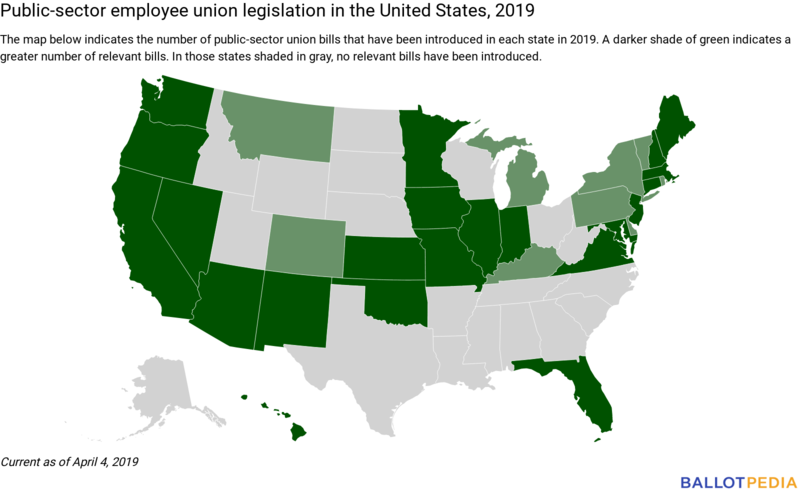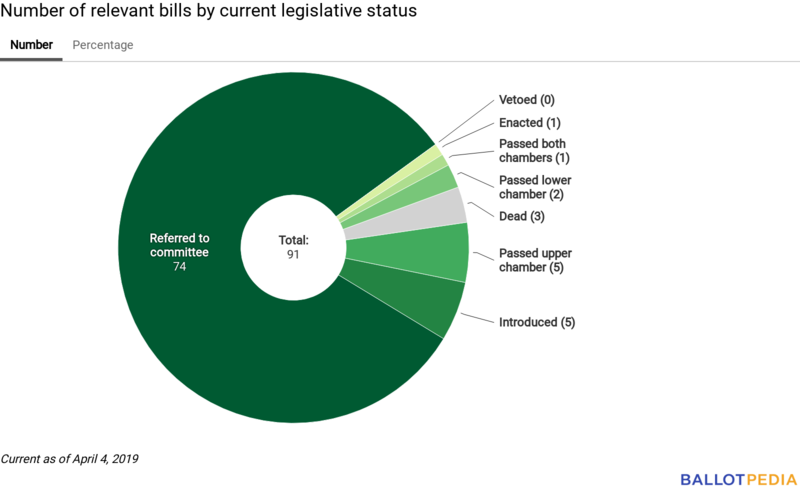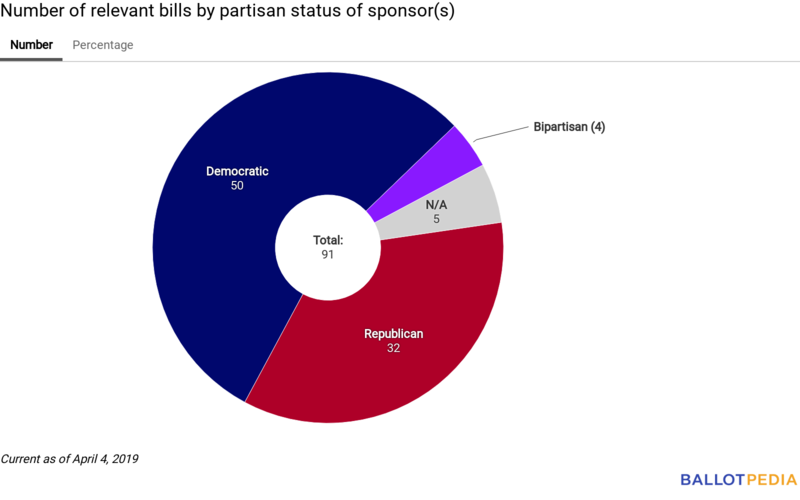Union Station: April 5, 2019
Welcome to Union Station, our weekly newsletter that keeps you abreast of the legislation, national trends, and public debate surrounding public-sector union policy. This week, we shine a spotlight on Colorado, where voters in Colorado Springs recently rejected a charter amendment that would have given city firefighters collective bargaining rights.
State spotlight: Voters in Colorado Springs reject collective bargaining for firefighters
On April 2, voters in Colorado Springs, Colorado, rejected Issue 1, a citizen initiative giving collective bargaining to uniformed city fire employees. The measure trailed in unofficial returns 67 percent to 33 percent with 100 percent of precincts reporting. Issue1 would have added an article to the city charter permitting firefighters to select an employee organization as their sole representative to act in negotiations with the city. Voter turnout was 32 percent, according to city officials.
- State legal context: Under SB25, also known as the Firefighter Safety Act (2013), local governments in Colorado may allow collective bargaining, with voter approval. Because voters rejected Issue 1, the Colorado Springs City Charter will continue to prohibit unions from negotiating with the city regarding firefighters' compensation. SB 25 still requires the city’s public employers to meet with firefighters or unions upon request to discuss other policies, such as safety and equipment.
- Path to the ballot: Issue 1 was placed on the ballot after initiative proponents submitted 17,322 valid signatures to the city clerk in December 2018.
- The group Firefighters for a Safer Colorado Springs led the campaign in favor of a “yes” vote, raising over $670,000 as of March 29, 2019. The Colorado Springs Professional Firefighters Association, IAFF Local 5, was the top donor to the “yes” campaign, funding 44 percent of the total contributions to date.
- Two opposition campaigns, Citizens Against Public Employee Unions and Americans for Prosperity, raised a combined $392,000 as of the March 29 filing to defeat Issue 1. The group Colorado Springs Forward was the top donor in opposition to the initiative, providing 45 percent of the contributions leading up to the election.
The big picture
Number of relevant bills by state
We are currently tracking 91 pieces of legislation dealing with public-sector employee union policy. On the map below, a darker shade of green indicates a greater number of relevant bills. Click here for a complete list of all the bills we're tracking.
Number of relevant bills by current legislative status
Number of relevant bills by partisan status of sponsor(s)
Recent legislative actions
Below is a complete list of legislative actions on relevant bills since the beginning of the year. Bills are listed in alphabetical order, first by state and then by bill number.
- California AB249: This bill would prohibit employers from deterring employees from becoming or remaining union members or opting out of union membership.
- Public Employment and Retirement Committee hearing April 3.
- California AB314: This bill would require employers to grant employees paid time for certain union activities.
- Public Employment and Retirement Committee hearing April 3.
- Connecticut HB06935: This bill would require public employers to provide unions with access to new employee orientations.
- Referred to Office of Legislative Research and Office of Fiscal Analysis April 1.
- Connecticut SB00064: This bill would prohibit employers from requiring employees to attend or participate in meetings concerning an employer's views of religious or political matters, including matters related to unions.
- Reported out of Legislative Commissioners' Office April 3.
- Illinois HB2113: This bill would remove language from state statutes requiring public employees who are not union members to pay agency fees. This bill would also authorize employees to bargain independently with employers.
- Referred to Rules Committee March 29.
- Illinois HB2636: This bill would establish the right of public employees to bargain independently with their employers.
- Referred to Rules Committee March 29.
- Illinois HB3455: This bill would exempt unions from requirements to represent non-members. It would also require employers to furnish unions with information on new employees.
- Referred to Rules Committee March 29.
- Maine LD1232: This bill would prohibit employers from requiring employees to join a union or pay fees to a union as a condition of employment.
- Labor and Housing Committee hearing April 5.
- Maine LD1451: This bill would grant collective bargaining agents greater access to employees and employee information. It would also authorize unions to use government buildings for meetings.
- Referred to Labor and Housing Committee April 2.
- Nevada SB135: This bill would provide for collective bargaining rights for state employees.
- Government Affairs Committee hearing April 4.
- New Hampshire SB148: This bill would require public employers to notify hirees of their right to join or refrain from joining. The notification would also include the estimated annual cost of joining a union.
- Senate adopted March 27. Introduced in House and referred to Labor, Industrial, and Rehabilitative Services Committee April 1.
- New Hampshire SB18: This bill would allow public employees to authorize voluntary wage deductions for insurance or employee benefits offered in conjunction with the employees' membership in a recognized union.
- Labor, Industrial, and Rehabilitative Services Committee hearing April 3.
- New Hampshire SB19: This bill would prohibit disclosure of information regarding a public employee's home address, email address, or phone number. An exemption would be made for unions.
- Labor, Industrial, and Rehabilitative Services Committee hearing April 3.
- Oregon HB2016: This bill would require public employers to grant paid time to employees participating in certain union activities. It would also require employers to furnish unions with access to employees.
- Introduced in Senate and referred to Workforce Committee March 29.
- Oregon HB3009: This bill would require public employers to provide unions with access to new employees. It would also permit individuals who are not union members to make payments in lieu of dues to unions.
- Business and Labor Committee work session April 3.
- Washington HB1575: This bill would declare that public employers and public-sector unions are not liable for claims involving agency fees paid to unions before Janus.
- Rules Committee placed on second reading in Senate April 2.
See also
| |||||||||||||||||||||||





